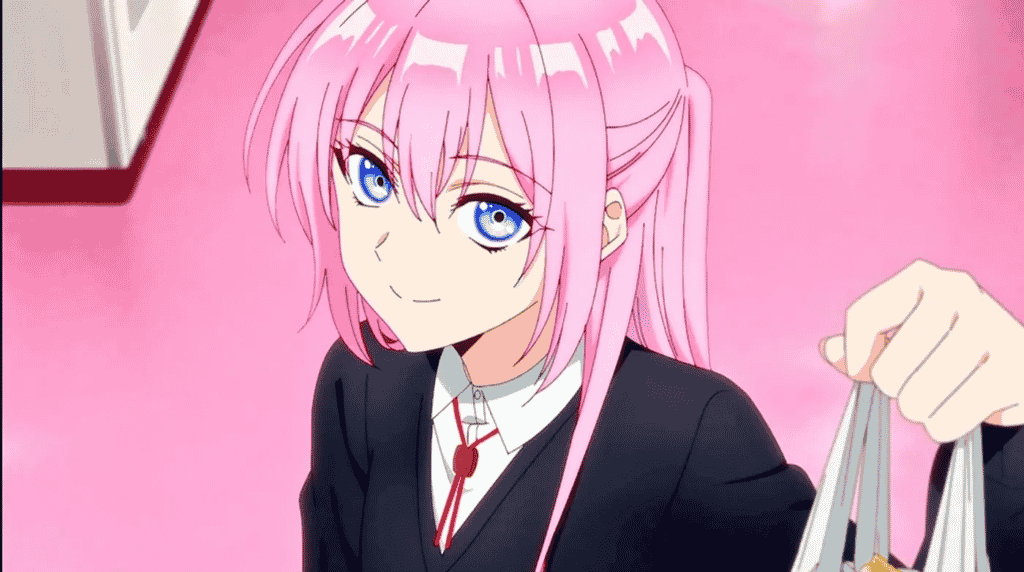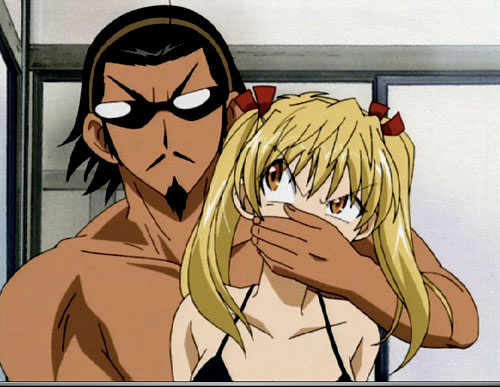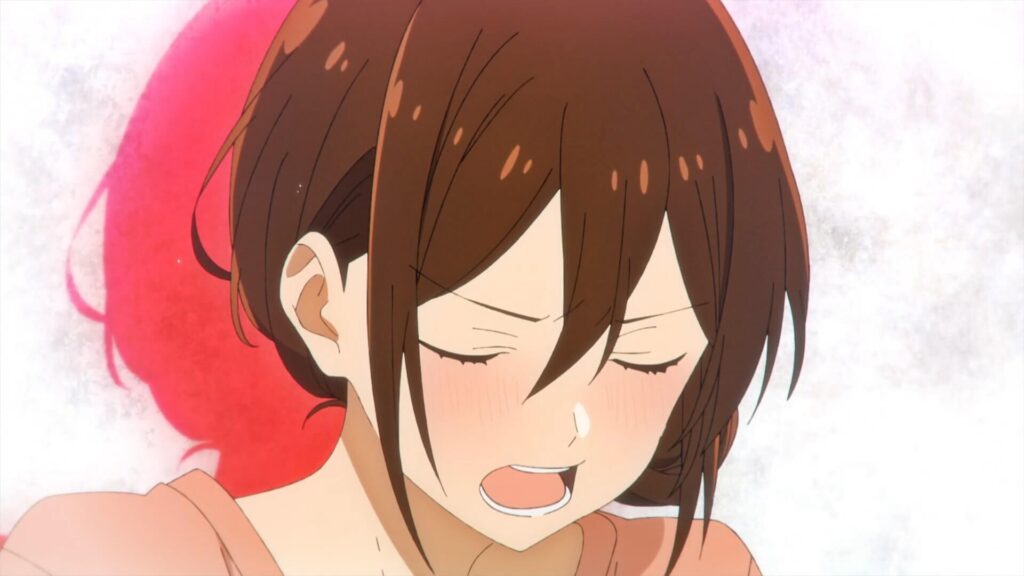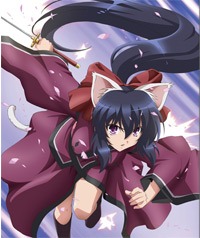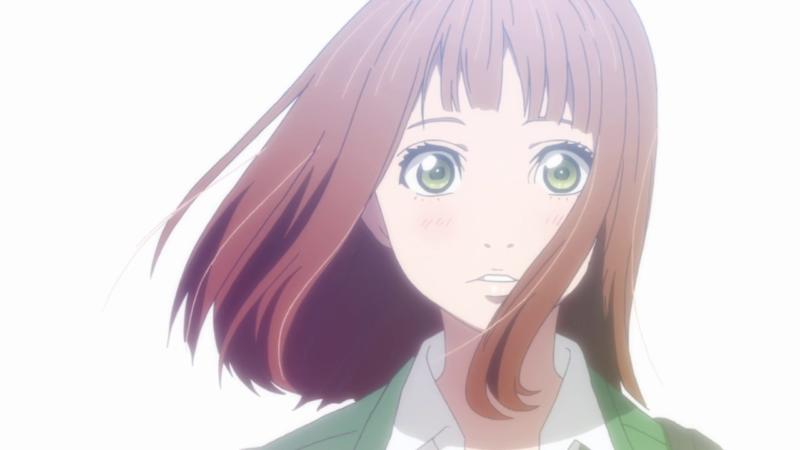Can a Boy-Girl Friendship Survive? is a romantic comedy with the usual love triangle set in high school. But this story has a few twists that are sadly realistic. I have to spoil the story to discuss the characters.
Yu Natsume is a high school boy who has an interest in flowers and wants to become a flower accessory maker and own his own shop. His best friend, Himari Inuzuka, acts as a model for his accessories and seeks to help his fulfill his dream. She likes nothing more than to watch him make his accessories. She and Yu have made a pact to remain best friends–the point of the story’s conflict between them as they realize they have romantic feelings for each other. Enter Rion Enomoto, Yu’s childhood friend and first crush. She eventually develops feelings for Yu, which is confesses to him frequently because Yu is completely blinded by Himari. Stirring the pot is Yu’s friend Shinji Makishima, a serial womanizer who dated Himari back in middle school. Now, he aims at getting Rion together with Yu to pay Rion back for an unstated debt or favor he owes her. He often sabotages Yu and, especially, Himari. Shinji’s role beyond being the antagonist is also to act as a deus ex machina at the end of the story. His role for this finale is hinted at by the story, at least, even if he still resolves the conflict instead of the protagonists. Himari, in an effort to get Yu’s romantic attention, joins a modeling agency associated with Rion’s elder sister, Kureha. She backs out because she truly serious about joining the agency in the first place. It was a bid for attention, but by breaking the contract, she ends up indebted to Kureha.
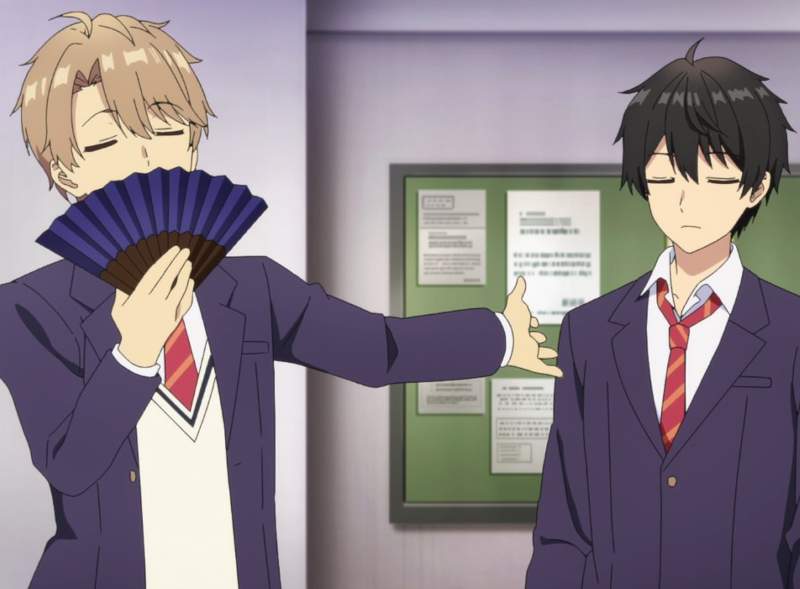
Shinji works with Kureha to try to get Himari to go to Tokyo to model and so remove her from the competition with Rion. Kureha makes a bet with Yu. If Yu can create an accessory that wows her, she will forgive Himari’s debt. Yu’s work quality, however, has declined–to the point where even the school tells him to stop selling his work because they believe he’s scamming students–because of his complicated feelings with Himari. Yu ends up failing the challenge. At the end of the story, Shinji pays off the debt Himari owes–hence Shinji’s deux ex machina role. We don’t know if he gets the money from Rion or what. Himari and Yu end up together after Himari’s debt is paid. But Rion doesn’t yet want to give up. Part of Shinji’s action links to his own romantic feelings toward Rion.
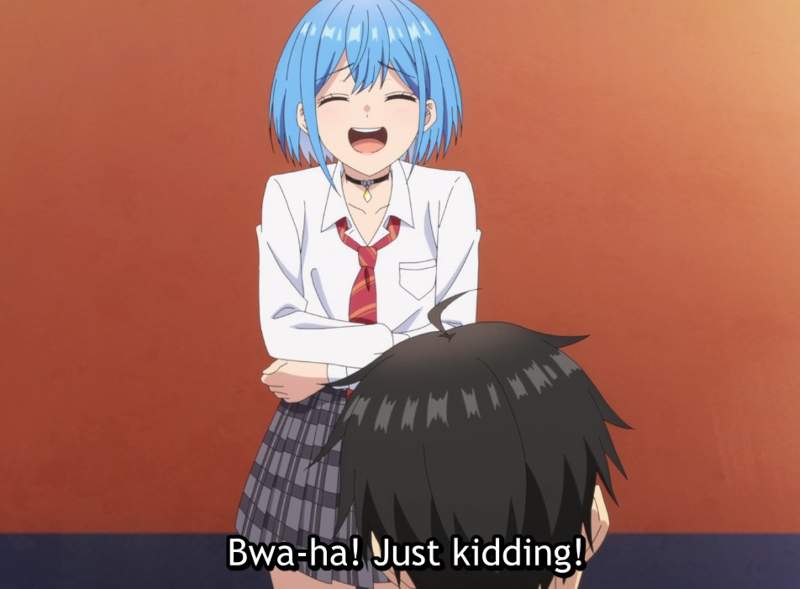
Himari has a habit of flirting with Yu and then trying to cover up her feelings with a laugh and a tease at his reaction. Her behavior bounces around more than a ping-pong ball during a redneck ping-pong game in a five-foot long room. She pulls out all the stops, pressing her breasts against him, offering to “practice kissing” just as friends, of course. Purely platonic. She and Rion both kokuhaku, or confess their love directly to Yu. Himari backs off with a tease–“Bwaha! You fell for it again! Look at your face!” while her own face is flushed. Then when she gets home, she collapses into a tangled mess her elder brother has to put back together. Rion doesn’t back down from her love confession, and Rion is more stable than Himari. Himari often infuriates Rion, who snatches Himari by the face and lifts her off her feet until Himari chills. Himari and Rion both suffer from too much confidence. Both believe they will win over Yu.
Himari is supposed to represent a teen’s conflicted and confused feelings, but she throws up red flags instead. Her behavior is more toxic than conflicted. She is definitely confused. In a scene at a diner, Himari tells Yu to allow Rion to model his accessories. Yu agrees, which makes Himari angry-jealous enough to pour a drink over Yu’s head. Many similar scenes appear throughout the story.
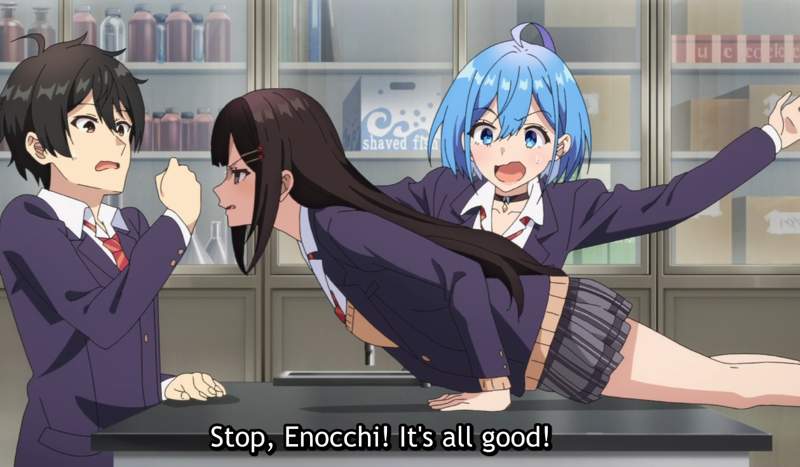
Rion has her own behavioral conflicts related to Yu, but she is more stable and healthier than Himari. At least, as teen anime characters go. She has her own problems. Rion is willing to be a third wheel and “share” Yu with Himari. She views this as better than losing Yu altogether. She doesn’t want to lose Himari as a friend either. This comes from how she genuinely wants what’s best for him. She doesn’t emotionally manipulate Yu as Himari does, giving him space to make up his own mind–not that there’s much mind for Yu to make up. Like Himari, she wants Yu to succeed in his passion.
And that brings me to Yu. Yu doesn’t want to ruin the friendship he has with Himari–even while Himari is frenetic with blowing up their friendship with all her neurotic behavior. Yu is a dense doormat. His denseness isn’t too far different from the usual rom-com guy. Himari’s backtracking and teasing confuses him to the point where he, rightly, can no longer believe her anymore. Himari’s fear makes her lie too often. Yu, however, is wishy-washy himself. He claims to be passionate about making flower accessories, but when he encounters the least bit of resistance–from Himari threatening to go to Tokyo to the school prohibiting him to sell accessories–he immediately crumbles. While there’s a level of realism to this, Yu comes off as someone who prefers to be walked over and who prefers the easy path. He doesn’t bother to entertain the idea that Rion’s confessions and genuineness toward him is healthier than Himari’s ping-ponging. Rion has a spine which would help balance is lack of spine. Yu and Himari are, frankly, not likeable characters. Yu isn’t without personality. He’s nice, and he’s not an audience projection character. He was willing to throw aside his dream, high school diploma, and more to chase Himari to Tokyo. He’s as unhealthy as Himari with his co-dependence. But unhealthy co-dependence is often portrayed as love in romantic comedies. It’s viewed as love in reality for that matter! Himari exploits his wishy-washy, doormat nature, feeling guilty about it sometimes and self-loathing at other times with how she can’t cross the friend line. Yu too doesn’t want to break his promise and the friend line.
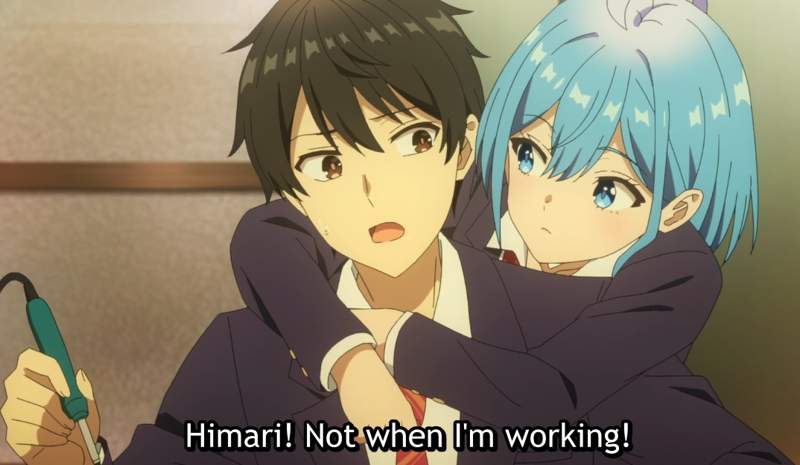
The conflict reduces to this invisible friend line, as if dating negates friendship. If anything, dating a friend is the best path for a relationships because the heady hormone-fueled romantic chemistry will wax and wane. Friendship, however, remains. The entire centerpiece of the conflict is a false dichotomy that the story attempts to point out. But the characters can’t carry this point. Himari instead illustrates toxicity which Yu enables and encourages with his own wish-washy, fearful behavior. The story is realistic in this way. Many people experience the same emotional ricochet as Himari’s does. People do give up when they hit the least hint of resistance as Yu does. Himari and Rion getting stuck on Yu for a relationship also happens. This happens when people lack a healthy attachment style. Instead, they become jealous and possessive. Himari is clingy. Yu, too, is clingy in a different way–he clings to a false dichotomy of friendship against romance. Again, this is all rather realistic. The plot…not so realistic.
As long time readers know, I like to pull lessons from stories, including anime. Even the most junk-food story can offer a lesson. I prefer to look for positive lessons, lessons that show some sort of positive behavior. But, at times, I can’t find a positive lesson. Can a Boy-Girl Friendship Survive? is such a case. There are negative lessons here: behaviors to avoid.
- Don’t let your mental state get out of hand like Himari, lying and being manipulative because of fear.
- Don’t be like Yu: blind to skyscraper-sized red flags and being a doormat that gives up on your passion.
- Don’t be like Rion, who holds out for a person like Yu.
Can a Boy-Girl Friendship Survive is middling to low if I had to rate it. The story is entertaining enough if you enjoy rom-coms or like to watch frenetic character wrecks. You could do far better and far worse.

